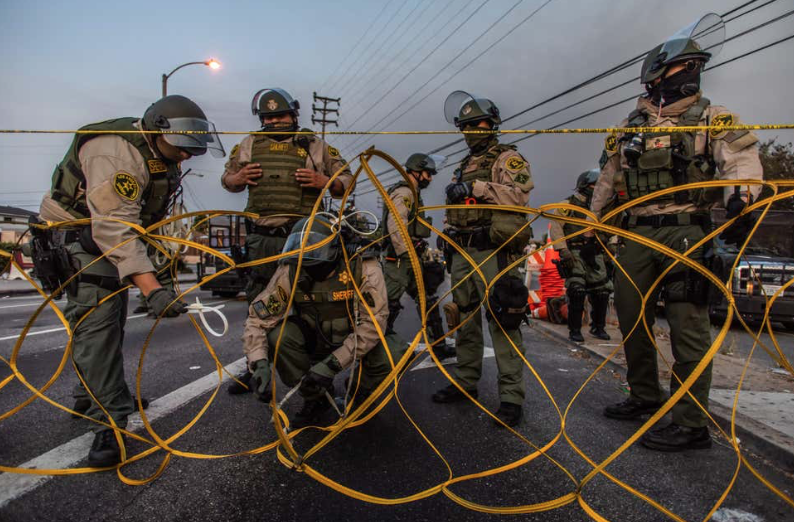CommentsHIDDEN POLICE FILES - The City of Inglewood, Calif., is arguing in court for the right to destroy records that could shed light on misconduct in its police department.
On Jan. 1, a new law takes effect in California expanding how long police departments have to keep files on cops’ behavior and what the departments have to make public. In the meantime, the ACLU has been fighting to gain access to use-of-force reports and other data from the department since 2019. Now, the Los Angeles Times reports that a judge issued a temporary order banning the Inglewood Police Department from destroying any records.
From the Los Angeles Times
The ruling comes three years after the city was thrown into controversy over its handling of law enforcement documents.
In late 2018, the city of Inglewood destroyed hundreds of police records in the weeks before Senate Bill 1421 went into effect. The law expanded public access to police use-of-force, misconduct and disciplinary records for departments across the state. Critics argued Inglewood sought to destroy years of investigative records involving police dating to 1991 just ahead of the new law, a claim city leaders rejected.
“This premise that there was an intent to beat the clock is ridiculous,” Inglewood Mayor James T. Butts Jr. said at the time.
Since 2019, the Inglewood Police Department has not produced a single document under SB 1421, according to the American Civil Liberties Union of Southern California in a lawsuit filed Dec. 23. On Dec. 14, the Inglewood City Council adopted a resolution to purge more police records, including all internal affairs investigations dated through Dec. 31, 2016, and all use-of-force reports and pursuit reviews dated through Dec. 31, 2019.
Police departments around the country are notorious for skirting open records laws, potentially keeping the public from knowing which officers have patterns of dangerous behavior. Dozens of departments in New York state, for example, didn’t respond to a newspaper’s request for cops’ disciplinary records even after the state of New York changed the law in 2020 to require disclosure.
New Hampshire just opened its so-called “Laurie List” of cops with questionable credibility to the public on Wednesday. Such lists are important because prosecutors could be required to disclose cops’ record of dishonesty or misconduct to defendants. A reporter in Oklahoma had to call a legal hotline for help getting police records on a shooting death by the Glenpool Police Department, after the department denied an open records request for documents. The victim’s family had been given no information by the department.
Not to be outdone, the LA County Sheriff’s Department hid a list of deputies with histories of misconduct even after the California Supreme Court ordered them to release the info. That list was finally made public this year under the same law that Inglewood police have been trying to get around, and the information on it is nothing short of ugly.
(Keith Reed is an occasional essayist for The Root, which published this article.)






